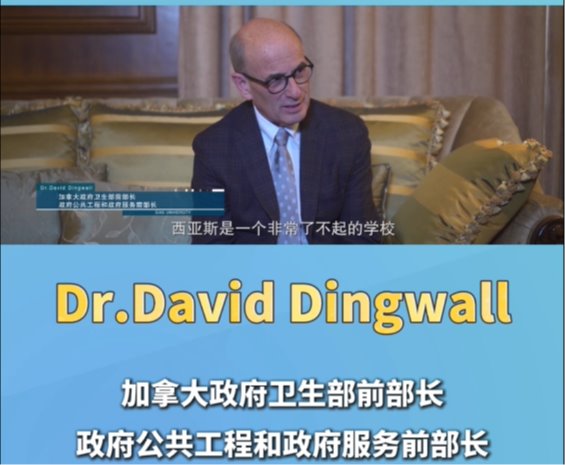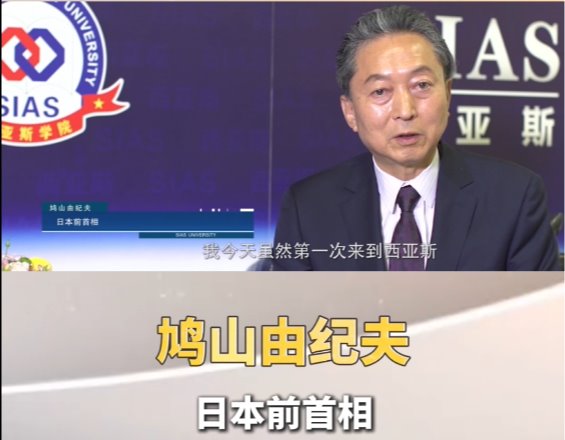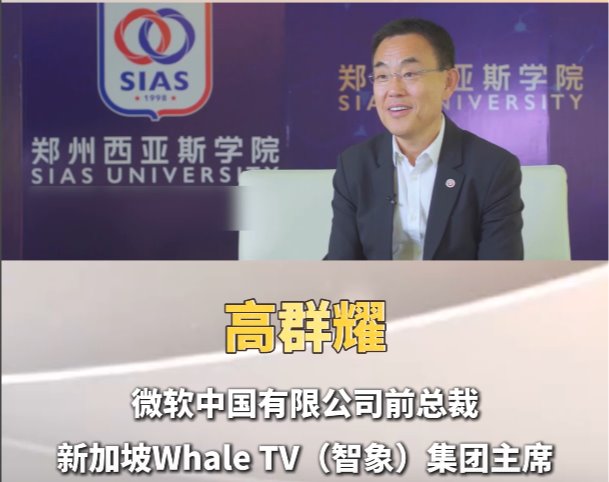The Ministry of Education and the Ministry of Human Resources & Social Security held the 2021 National Video Conference on Employment and Entrepreneurship for College Graduates on December 1 in Beijing. The conference was held to implement directives from the 5th Plenary Session at the 19th CPC Central Committee and ensure a good employment outlook for graduates in 2021. Sias University set up a viewing of the conference. Sias Executive President, Wang Jialin, and Vice Presidents Zhao Yuxin and Xu Shengdao, attended the viewing. The heads of the Academic Affairs & Scientific Research Office, the Academic Affairs Office, the Enrollment Office, the Employment & Entrepreneurship Department, the Communist Party Office, and the General Office of the Residential Colleges also attended the conference viewing.
At the conference, it was pointed out that this year, during the Covid-19 pandemic, the education departments, human resources and social security departments, and colleges and universities had responded well to the need for stability in the employment of graduates by opening up employment channels and providing employment services. It is estimated that 9.09 million students will graduate college in 2021; an increase of 350,000 from 2020. It was recommended that colleges and universities should integrate the requirements of new development concepts and patterns into the employment work for college graduates, plan well, create risk responses, and do everything possible to promote employment.
The conference also stressed that all local education departments and universities should implement the Ministry of Education's requirements for employment and entrepreneurship for 2021 graduates. They are encouraged to promote a diversified supply of employment, expand their employment spaces, support graduates to find jobs or start businesses in emerging industries and modern service industries. Students should also be encouraged to pursue a wide range of goals from joining the army to working as scientific research assistants. It was said that the quality and efficiency of the system was to be improved while broadening the channels of campus recruitment and providing a platform for employment and entrepreneurship supply and demand. An additional point was made about providing accurate assistance to disadvantaged groups, ensuring that these sections of graduates had their employability and entrepreneurial abilities enhanced to the point where their rights and interests were ensured. Employment feedback and surveys were also encouraged for the purpose of the improvement of quality, evaluation of employment, and the deepening of the reform of the mechanisms of employment, enrollment, and training.
According to the conference, local human resources and social security departments should establish a collaborative linkage mechanism to expand channels, promote entrepreneurship, improve services, and protect rights and interests. It is also necessary to broaden employment channels for college graduates, stabilize the recruitment at public institutions, promote the expansion of recruitment in state-owned enterprises, encourage small and medium-sized enterprises to increase their employment rate, support flexible employment through varied channels, and encourage students to work in both urban and rural communities. Loans were to be increased and interest rates reduced while extending the scope of entrepreneurship on campuses, with one-stop consultation, guidance, and support provided. Additionally, the improvement of employment services, the increase of information online, the enhancement of offline services, are necessary to meet the diversified needs of graduates. Vocational guidance on campus and in the community, internships for knowledge, technology, and management, would provide greater support for graduates entering the workplace. The protection of employment rights and interests, the establishment of assistance for graduates from poor families, and those from remote areas or third and fourth-tier cities are to be prioritized.



















